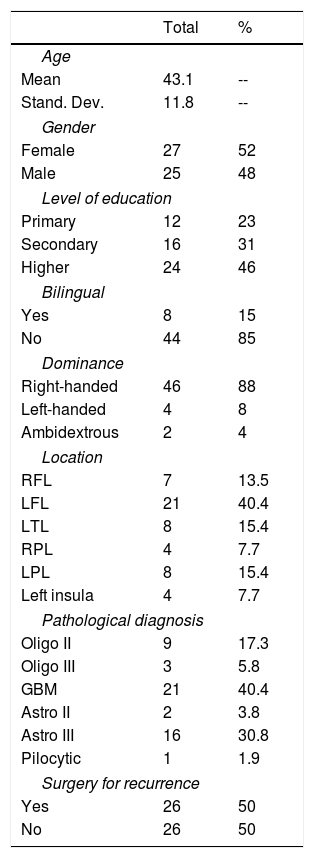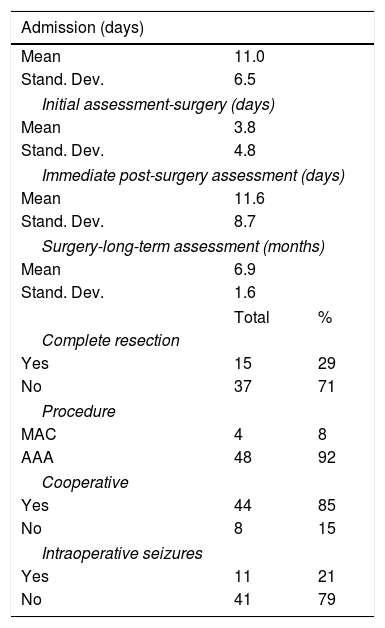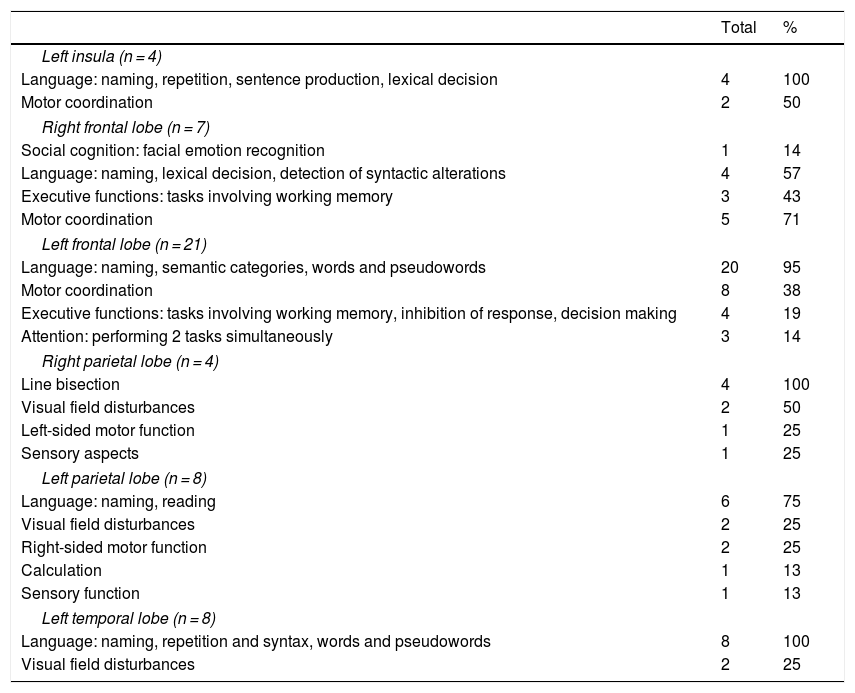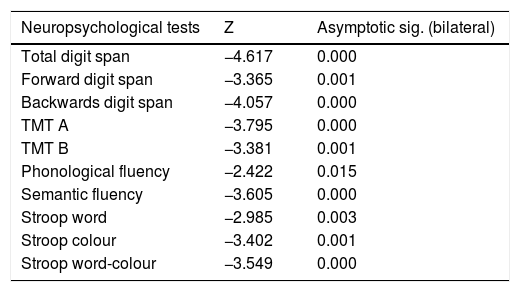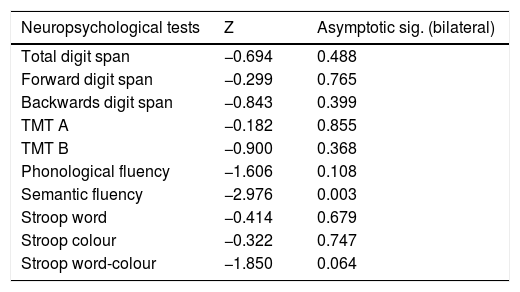Glial brain tumours usually require neurosurgical treatment and they are associated with cognitive, emotional and behavioural impairments. Awake intraoperative brain mapping is the gold standard technique used to optimise the onco-functional balance. Neuropsychological assessment and intervention have relevance in this type of procedures. Currently, there is a lack of protocolled structure for the neuropsychological intervention being able to satisfy patient needs.
MethodA retrospective descriptive study of 52 patients was performed, all of them with a diagnosis of glial tumour. The structure of the protocol developed in our centre is reported, also data of neuropsychological evaluation, comparing baseline performance with both immediate posterior performance, and long term performance.
ResultsWe describe our experience in each step of the intervention, highlighting the development of eight neurocognitive protocols for intraoperative brain mapping. The results of the neuropsychological examination objectify deficits in the immediate after surgery assessment which are reduced in the long-term assessment.
ConclusionsWe emphasize the need of providing and structuring the cognitive and emotional aspects of patients suffering from any pathology that entails acquired brain damage in hospital environment. This type of approach is aimed at increasing the quality of life of cancer patients by structuring and optimizing tasks during their surgical intervention and attending to the neuropsychological difficulties they suffer.
Los tumores cerebrales gliales precisan habitualmente de un tratamiento neuroquirúrgico y se asocian con diversas alteraciones cognitivas, emocionales y comportamentales. El mapeo cerebral intraoperatorio es la técnica por excelencia utilizada para optimizar el equilibrio onco-funcional. La valoración e intervención desde la perspectiva neuropsicológica tiene gran relevancia en este tipo de procedimientos. Actualmente, se carece de una estructura protocolizada para la exploración y el seguimiento neuropsicológico que estos pacientes necesitan.
MétodoSe realiza un estudio descriptivo retrospectivo de 52 pacientes, todos ellos con diagnóstico de tumor glial, describiendo la estructura del protocolo desarrollado en nuestro centro. Se analizan los datos de la evaluación neuropsicológica, comparando el rendimiento inicial de los pacientes con su rendimiento posterior a la cirugía a corto y a largo plazo.
ResultadosSe describe nuestra experiencia en algunas las fases del protocolo, detallando las tareas que se han desarrollado para valorar a los pacientes dentro del quirófano. Los resultados de los datos de las evaluaciones neuropsicológicas objetivan déficits en el momento posterior a la cirugía que remiten en la valoración a largo plazo.
ConclusionesDestacamos la necesidad de dar espacio y protocolizar en la asistencia hospitalaria los aspectos cognitivos y emocionales de los pacientes que sufren cualquier patología que conlleve daño cerebral adquirido. Este tipo de abordaje está orientado a aumentar la calidad de vida de los pacientes oncológicos estructurando y optimizando las tareas durante su intervención quirúrgica, pero también atendiendo a las dificultades neuropsicológicas que manifiesten.
Article

If it is the first time you have accessed you can obtain your credentials by contacting Elsevier Spain in suscripciones@elsevier.com or by calling our Customer Service at902 88 87 40 if you are calling from Spain or at +34 932 418 800 (from 9 to 18h., GMT + 1) if you are calling outside of Spain.
If you already have your login data, please click here .
If you have forgotten your password you can you can recover it by clicking here and selecting the option ¿I have forgotten my password¿.






